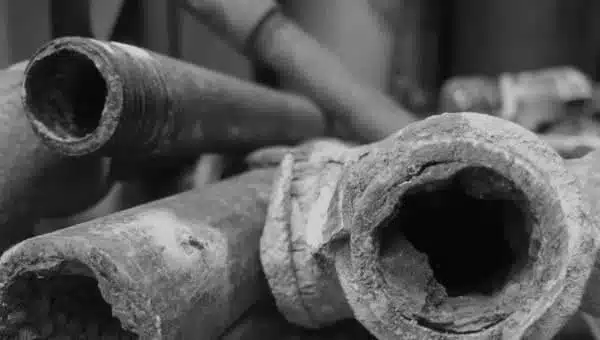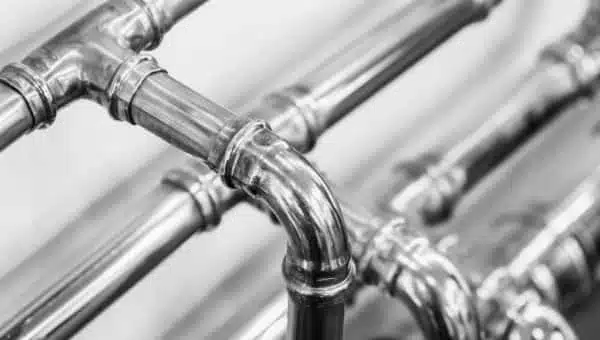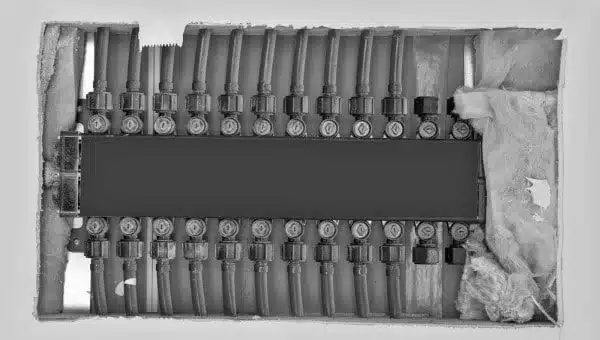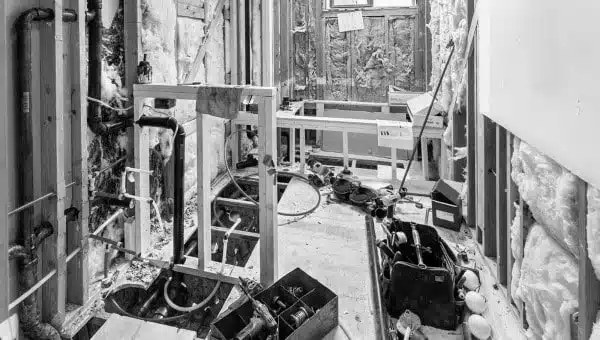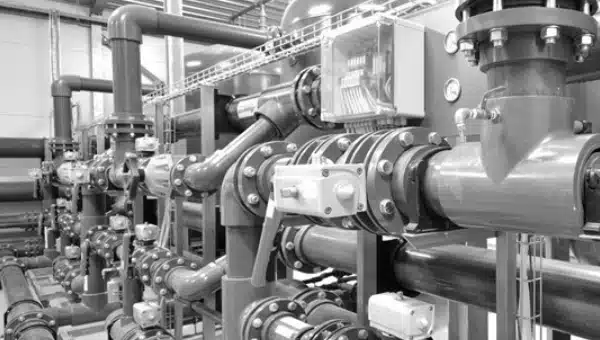In the world of home improvement, there are countless projects that grab the spotlight—kitchen remodels, bathroom renovations, and landscaping overhauls, to name a few. However, one critical project often flies under the radar, despite its paramount importance to the safety, efficiency, and comfort of a home: the plumbing repipe.
This essential maintenance task might not be as glamorous as installing marble countertops or hardwood floors, but its impact on a home’s functionality and the well-being of its occupants cannot be overstated. A plumbing repipe involves the replacement of old, potentially hazardous pipes with new, durable piping, ensuring that the water system operates smoothly and safely. With the right approach, materials, and planning, a plumbing repipe can significantly enhance a home’s value and provide peace of mind for homeowners.
Table of Contents
The Hidden Dangers of Old Plumbing
Old plumbing systems, particularly those featuring galvanized or copper pipes, harbor significant hazards that homeowners may not immediately recognize. These pipes, once standard in home construction, are now known for their susceptibility to corrosion over time. This deterioration process is not just a superficial issue but one that delves deep into the health and structural integrity of a home.
Corrosion within these pipes can lead to a myriad of problems. One of the most concerning is the potential for water contamination. As these pipes break down, rust and other harmful substances can leach into the household’s water supply, posing a serious risk to health. This issue is especially pronounced in systems in dire need of copper pipe replacement, where the risk of lead contamination becomes a reality, given the age of some installations.
Beyond the water quality concerns, the structural implications of failing old plumbing can be both severe and costly. Leaks, often starting small and unnoticed, can escalate quickly, leading to water damage that compromises the home’s foundation and walls. This damage is not only difficult to repair but can also lead to the growth of mold, a health hazard that further compounds the problems faced by the occupants.
Moreover, the inefficiency of old, corroded pipes affects the overall water pressure in the home, leading to a less satisfactory and more frustrating water use experience. This inefficiency can strain the plumbing system, increasing the likelihood of catastrophic failures that necessitate emergency pipe repair. The risk of such incidents underscores the urgency of considering a plumbing repipe project before minor issues escalate into major crises.
These hidden dangers of old plumbing, while not immediately visible, pose significant risks. They highlight the critical need for homeowners to assess and address the state of their plumbing systems proactively. The move towards modern, durable piping solutions not only mitigates these risks but also sets a foundation for a safer, more efficient home.
The Immediate Benefits of a Plumbing Repipe
Following the completion of a plumbing repipe project, homeowners stand to experience a wide array of benefits that significantly improve their daily living experience. One of the most noticeable changes is the dramatic enhancement of water quality. Gone are the days of dealing with water that carries the taste and color of corrosion, a common issue with older piping systems. The fresh, clean water that flows from every tap post-repipe is not only more pleasant for consumption but also safer, devoid of the contaminants that old, corroded pipes often introduce.
Another significant advantage is the improvement in water pressure. With the removal of obstructions caused by years of buildup and corrosion inside old pipes, water can flow freely, restoring pressure to optimal levels. This results in a more enjoyable and efficient use of water throughout the home, from showers that provide a steady, strong stream to faucets that fill pots and pans without frustration.
The shift to new, more reliable piping materials drastically diminishes the likelihood of sudden and unforeseen plumbing emergencies. Such emergencies often entail significant stress and financial burden, stemming from the need to conduct emergency pipe repairs. By proactively replacing old pipes, homeowners effectively sidestep the potential for these disruptive scenarios, fostering a sense of security and well-being.
Moreover, the transition away from outdated materials like galvanized or copper pipes to more modern alternatives such as PEX or updated copper systems introduces an era of durability and longevity to the home’s plumbing infrastructure. These materials are specifically engineered to resist corrosion and withstand the rigors of daily water use, ensuring that the benefits of a repipe extend well into the future.
Together, these immediate benefits from a plumbing repipe coalesce to form a more comfortable, safe, and efficient living environment. They mark a profound improvement in the functionality and reliability of a home’s water system, solidifying the value of this often-overlooked home improvement project.
When it comes to maintaining a home, ensuring that your plumbing system is in top condition is crucial for both the functionality and safety of your living space. Over time, pipes age and may become susceptible to damage, corrosion, or leaks, leading to a range of water-related issues.
This is where the concept of plumbing repipe comes into play, offering homeowners a solution that ranges from emergency repairs to whole-house overhauls. Understanding the nuances of plumbing repipe can help you make informed decisions about how to best care for your home’s plumbing infrastructure.
Emergency Pipe Repair: Acting Fast to Prevent Damage
In the face of a plumbing emergency, time is of the essence. The sudden occurrence of a pipe burst or significant leak can quickly escalate, inflicting severe water damage on your home’s structure and interiors. The initial step in emergency pipe repair is to swiftly locate the leak’s origin.
Once identified, the repair may involve either a quick fix, such as applying a patch over a small rupture, or a more extensive solution like replacing a larger section of the pipe. This rapid response is vital in halting the flow of water, thereby mitigating the potential for extensive damage to floors, walls, and personal property.
It’s imperative to recognize that these emergency situations serve as critical indicators of underlying issues within your plumbing system. Often, a burst pipe isn’t merely a one-off problem but a symptom of broader systemic issues such as aging materials, corrosion, or previous substandard repairs. While the immediate focus is on controlling the situation and preventing further damage, this event underscores the importance of considering a more comprehensive approach to your home’s plumbing needs.
The intervention in such emergencies not only aims at rectifying the immediate problem but also sets the stage for a thorough evaluation of your plumbing system’s health. Engaging with professionals who can assess and advise on the condition of your pipes and the potential for future issues is a prudent step following emergency repairs.
This proactive stance can significantly reduce the likelihood of facing similar emergencies in the future, ensuring that your plumbing system remains robust and reliable. Taking swift and decisive action in the face of plumbing emergencies not only protects your home in the short term but also contributes to the long-term well-being of your entire plumbing infrastructure.
Replacing Galvanized Pipes: Saying Goodbye to Rust
Galvanized pipes, once the standard in residential plumbing due to their zinc coating designed to ward off rust, have shown their age and limitations in homes constructed before the 1960s. As these pipes reach the end of their useful life—typically around 40-50 years—the protective zinc layer diminishes, leaving the steel exposed to water and oxygen, which inevitably leads to rusting. This corrosion not only compromises the structural integrity of the pipes but also poses a significant risk to water quality, as rust particles can contaminate the water supply, leading to discoloration and a metallic taste.
The issues associated with galvanized pipes extend beyond water quality. Rust buildup within the pipes can significantly reduce water pressure, affecting the performance of showers, faucets, and appliances that rely on a steady water flow. Furthermore, the diminished structural integrity increases the likelihood of leaks and bursts, potentially causing extensive damage to your home and necessitating urgent, costly repairs.
Replacing galvanized pipes with modern alternatives is more than a mere update; it’s a transformative improvement for your home’s plumbing system. Modern materials such as PEX or updated copper systems offer superior durability, resistance to corrosion, and enhanced water quality. These newer piping options also come with the added benefits of improved water pressure and flow, ensuring that your plumbing system can efficiently meet the demands of daily use.
The transition from galvanized to contemporary piping solutions not only resolves the immediate concerns of rust and corrosion but also aligns your home’s plumbing system with current safety and performance standards. While the process may seem daunting, the long-term benefits—ranging from safeguarded water quality to the prevention of water damage and the avoidance of emergency repairs—underscore the value of this crucial home improvement project.
Engaging with skilled professionals to undertake this replacement ensures that your home’s plumbing system will be capable, compliant, and reliable for years to come, marking a definitive end to the worries of rust and corrosion.
Replacing Copper Pipes: Addressing Pinhole Leaks
Copper pipes have long been celebrated for their robustness and the resistance they offer against corrosion, making them a preferred choice for many homeowners. Despite their durable nature, they are not without their vulnerabilities. A common issue that homeowners may encounter with older copper plumbing is the development of pinhole leaks. These small yet persistent leaks can lead to a cascade of problems if not addressed promptly, including water damage within the home and an unwelcome increase in water bills.
Pinhole leaks in copper pipes are often the result of prolonged exposure to certain chemicals in the water, which gradually erode the pipe’s surface. The process, known as pitting corrosion, targets the weakest spots in the copper, leading to these minute breaches. While seemingly insignificant individually, pinhole leaks can collectively signify or lead to more significant plumbing system concerns. They are often an indication that the copper pipes, especially in older homes, are nearing the end of their service life and may require a comprehensive evaluation.
The strategy for dealing with pinhole leaks extends beyond mere patch-up jobs. Given the potential for underlying systemic issues, replacing older, compromised sections of copper piping—or indeed, the entire system—is often the most practical and long-term solution. The advent of newer, more resilient materials offers homeowners the opportunity to upgrade their plumbing systems. Options such as PEX piping not only provide a robust defense against pinhole leaks but also bring additional advantages such as flexibility and resistance to scale and chlorine, which copper pipes lack.
In undertaking the replacement of copper pipes, it is essential to conduct a thorough inspection to understand the extent of the problem and determine the most affected areas. This proactive approach enables homeowners to prioritize immediate concerns while planning for a broader system overhaul, if necessary. Transitioning to newer piping materials can significantly enhance the longevity and reliability of your home’s plumbing system, offering a safeguard against the unpredictable and often costly nature of pinhole leaks in copper pipes.
Replacing Pex Pipes: When to Update
One of the primary indicators necessitating the replacement of PEX piping is visible damage or degradation. This can result from several factors, including prolonged exposure to ultraviolet (UV) light if the pipes are incorrectly installed in areas where they are exposed to sunlight, or from physical damage that might occur during renovations or due to accidental impact. PEX is also susceptible to damage from extremely high temperatures, which can lead to a breakdown in its structural integrity over time.
Additionally, installation errors play a significant role in the premature failure of PEX pipes. Incorrect fittings, overly tight bends, or exposure to chemicals incompatible with PEX can lead to leaks and bursts. Given that installation practices have evolved alongside advancements in PEX technology, older installations might not meet current standards, further compounding the risks of failure.
In instances where PEX pipes show signs of wear, are damaged, or were installed using outdated methods, evaluating the system and considering an upgrade is not just about maintaining water flow. It’s about ensuring the longevity, safety, and efficiency of your home’s entire plumbing infrastructure.
Whole House Repipe: A Comprehensive Solution
Embarking on a whole-house repipe is a major decision for any homeowner, but it can be an essential step toward securing the long-term health and efficiency of a home’s plumbing system. This extensive process involves the removal and replacement of all the old, potentially failing pipes with new, high-quality piping materials. While the thought of such an extensive overhaul might seem daunting, the benefits it offers extend far beyond the immediate resolution of chronic plumbing issues.
For homes plagued by persistent leaks, significantly reduced water pressure, or those with piping systems composed of outdated materials such as galvanized steel or early-generation PEX, a whole-house repipe represents a proactive approach to plumbing maintenance. It is also a critical step during major home renovations, allowing for the integration of modern plumbing systems that align with contemporary building standards and materials.
The process of a whole-house repipe is comprehensive, requiring careful planning and execution. It begins with a thorough inspection of the current system to identify the specific needs of the home, followed by the selection of appropriate materials that offer longevity, efficiency, and compliance with current plumbing codes. Modern piping options, such as copper or advanced PEX materials, provide solutions that are designed to enhance water quality, increase water pressure, and offer superior resistance to corrosion and damage.
Choosing to invest in a whole-house repipe can dramatically reduce the risk of future plumbing emergencies, sparing homeowners the stress and expense of dealing with sudden leaks or water damage. Moreover, this upgrade significantly contributes to the overall value of the property, appealing to potential buyers with the promise of a reliable and up-to-date plumbing system.
Plumbing Rough In: Laying the Groundwork for Success
The plumbing rough-in phase is a pivotal moment in the construction or renovation of a home, where the foundational components of the plumbing system are meticulously installed. This stage, which occurs before the walls and floors are sealed, encompasses the strategic placement of pipes, drains, water supply lines, and vent systems. It sets the stage for the functionality and accessibility of the entire plumbing network.
Attention to detail during this phase is paramount, as it directly impacts the ease of future maintenance, the efficiency of water delivery, and the prevention of leaks and water damage. Collaborating with knowledgeable plumbers who understand the intricacies of the rough-in process ensures that the layout is optimized for water flow, waste removal, and system longevity.
Critical considerations during this phase include adhering to local building codes, which dictate specifics such as pipe material, size, and installation practices. Additionally, the precise positioning of fixtures and appliances must be accounted for, ensuring that supply and waste lines are accurately placed to serve sinks, toilets, and showers without compromise.
Moreover, the rough-in phase offers an opportunity to incorporate advanced plumbing technologies and materials that can enhance the system’s performance. For instance, the selection of high-quality pipes and fittings can minimize the risk of future leaks and reduce maintenance needs, aligning with the objectives of durability and reliability.
Efficient execution of the plumbing rough-in is not just about laying pipes; it’s about foresight and planning for a system that meets the household’s demands while ensuring ease of access for repairs and upgrades. Engaging experienced professionals during this critical phase is an investment in the home’s operational excellence and long-term value, guaranteeing that the plumbing system built is robust, compliant, and prepared to efficiently serve the home for decades to come.
Choosing the Right Materials for Your Repipe
When embarking on a plumbing repipe, the selection of materials is a pivotal decision that influences not only the project’s immediate success but its long-term sustainability as well. Two primary options dominate the market: copper and PEX, each with its distinct set of advantages tailored to different needs and preferences.
Copper, a time-honored choice for plumbing, boasts remarkable durability and a proven track record of reliability spanning decades. Its resistance to corrosion makes it an excellent choice for areas with aggressive water. Copper’s thermal conductivity is beneficial in hot water delivery, ensuring energy efficiency. However, the installation of copper piping requires skilled labor and soldering, potentially increasing the project’s cost. Additionally, copper’s price is subject to market fluctuations, which can affect the overall budget of the repipe.
On the other hand, PEX (cross-linked polyethylene) has emerged as a modern contender, appreciated for its flexibility and ease of installation. This material can be snaked through walls and around corners with minimal jointing, significantly reducing labor time and costs. PEX is highly resistant to scale and chlorine, does not corrode, and its flexibility makes it less susceptible to bursting due to freezing. It’s an ideal choice for regions with harsh winters or for homeowners looking for a cost-effective solution. However, it’s important to note that PEX is not suitable for outdoor use as UV rays can degrade its quality.
The decision between copper and PEX should consider the specific circumstances of the home, including its age, the quality of the local water supply, and the homeowner’s long-term plans. Environmental considerations are also key, as the sustainability and recyclability of the materials come into play. With these factors in mind, homeowners can make an informed choice, ensuring that their repipe project not only addresses immediate needs but also aligns with broader considerations of durability, efficiency, and environmental responsibility.
The Environmental Impact of Modern Plumbing Materials
The transition to modern plumbing materials, particularly PEX, represents a significant stride towards environmental stewardship in the realm of home improvement. Unlike traditional materials that have dominated the plumbing industry for decades, such as copper, PEX’s manufacturing process is markedly less energy-intensive. This reduced energy requirement not only lessens the overall carbon footprint associated with a plumbing repipe project but also echoes a broader commitment to sustainable practices within the construction sector.
Moreover, PEX’s lifecycle presents an environmentally friendly narrative. At the end of its service life, PEX piping can be recycled, thereby diverting waste from landfills and contributing to the circular economy. This feature stands in stark contrast to older materials, which often end up as non-decomposable waste, exacerbating the global waste management crisis. By opting for PEX in repiping projects, homeowners indirectly participate in reducing the environmental impact associated with the disposal of construction materials.
Another notable advantage of modern plumbing materials like PEX lies in their durability and resistance to leaks. The implications of this for water conservation are profound. Leaks in old, corroded pipes not only lead to water waste but also necessitate frequent repairs and replacements, further increasing the environmental burden through the consumption of resources and energy. The adoption of PEX, known for its resilience against such issues, thereby reduces the likelihood of leaks, resulting in more efficient water use and diminished demand for repair materials and activities.
These environmental benefits of modern plumbing materials like PEX underscore a significant shift in the industry towards more sustainable practices. By integrating considerations of energy efficiency, recyclability, and water conservation into the choice of materials for repiping projects, the plumbing sector contributes to the broader environmental goals of reducing carbon emissions, minimizing waste, and preserving natural resources. This movement towards sustainability, powered by the adoption of advanced materials, marks a pivotal moment in aligning home improvement endeavors with the urgent need for environmental protection and responsible resource management.
Planning and Executing a Successful Repipe Project
Executing a successful plumbing repipe project is a meticulous process that requires detailed planning and careful implementation. It begins with a comprehensive evaluation conducted by a professional plumber. This initial assessment is crucial as it determines the current state of the home’s plumbing and identifies the extent of the repiping required. Depending on the findings, the homeowner and plumber can then discuss the project’s scope, addressing whether a whole house repipe or a more localized replacement is necessary.
Following the assessment, the next critical step involves choosing the appropriate materials for the repipe. This decision should be informed by factors such as the home’s specific needs, the local water quality, and long-term durability expectations. Whether it’s the flexibility and cost-effectiveness of PEX or the durability and reliability of copper, each material offers unique benefits suited to different situations. It is essential for homeowners to understand these distinctions, enabling them to make an informed choice that aligns with their objectives and the home’s requirements.
Selecting a reputable contractor is another pivotal element of the planning process. Homeowners must ensure that the chosen professional has a solid track record of successfully completing repipe projects. Seeking recommendations, reviewing past project portfolios, and verifying licensing and insurance can aid in finding a contractor who can execute the project efficiently and to a high standard.
Once the groundwork is laid, scheduling the project is the next step. Timing is key, as repiping can disrupt daily routines. The goal should be to minimize inconvenience, possibly scheduling work during periods when the home is less occupied. Homeowners should also prepare for the temporary absence of water service, planning accordingly to mitigate the impact on their household.
Throughout the project, open communication between the homeowner and the contractor is essential. Regular updates and discussions can help address any concerns promptly, ensuring the project stays on track and any adjustments are made swiftly. By adhering to these guidelines, the planning and execution of a repiping project can proceed smoothly, setting the stage for enhanced home comfort and long-term peace of mind.

FAQs
What is the cheapest way to repipe a house?
PEX plumbing can be a more cost-effective choice than copper tubing, despite the fact that copper pipe can be purchased at a variety of costs, often ranging from one dollar to two dollars per foot. Copper pipes are available in a variety of diameters; however, the utilization of alternative materials throughout the plumbing process can result in a reduction in the overall cost per square foot. Over the course of a thorough installation, the price might range anywhere from $10,000 to around $25,000 on average. Copper pipes, on the other hand, can result in a little higher cost per square foot when compared to other available alternatives.
When should a house be repiped?
If you have been struggling with plumbing issues such as blockages, low water pressure, leaks, erosion, or discolored water, it may be prudent to explore the option of repiping your home. In fact, if you have faced multiple plumbing problems, reconsidering repiping should be a priority. Moreover, if your home is over half a century old, it is highly recommended that you seriously contemplate replacing the pipes. Such an undertaking is necessary and should be completed without delay.
What is included in a repipe?
Throughout the repiping process, it is customary to replace old water lines, hose connections, supply lines, and valves with new ones. A new shut-off valve for the main water line, usually situated inside the home, is also typically part of the upgrade. This valve is installed inside the house with the intention of eliminating all outdated components and replacing them with materials that are not only of higher quality but also more efficient.
Conclusion – The Lasting Value of a Plumbing Repipe
In the grand scheme of home improvements, the value of a plumbing repipe project stands out not for its aesthetic appeal but for its profound impact on a home’s functionality and the safety of its inhabitants. This endeavor, though often overlooked, plays a pivotal role in the preservation and enhancement of a residence’s overall health and efficiency. By proactively replacing old, deteriorating pipes with modern, durable alternatives, homeowners not only mitigate the risks associated with aging plumbing systems but also embrace an opportunity to significantly upgrade their living environment.
A repipe project transcends the mere act of swapping out old pipes for new ones. It represents a strategic investment in the home’s future, safeguarding against the potential financial and emotional strain of unexpected plumbing emergencies. The process of selecting suitable materials for the repipe, be it PEX or copper, further illustrates the homeowner’s commitment to quality, longevity, and, in cases where environmentally friendly options are chosen, sustainability. This careful consideration ensures that the new plumbing system not only meets the current needs of the household but is also poised to withstand the demands of the future.
Moreover, the environmental implications of opting for materials like PEX highlight a broader societal shift towards responsible resource management and energy conservation. Such choices reflect an understanding of the interconnectedness of home improvement projects and global environmental goals, underlining the significance of a repipe project beyond the confines of individual homes.
Ultimately, the enduring value of a plumbing repipe lies in its ability to provide peace of mind, enhance daily living, and contribute to the home’s long-term resilience and sustainability. As the unseen hero of home improvement, a well-executed repipe project affirms the homeowner’s dedication to maintaining a safe, efficient, and forward-thinking residence, securing a legacy of comfort and reliability for years to come.


